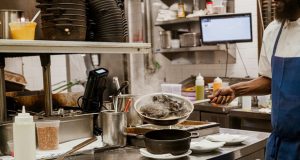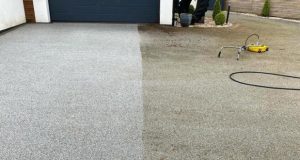Love is in the air. So are germs. How can the hospitality industry enhance its cleaning protocols to reassure customers this Valentine’s Day?
Chartered Environmental Health Practitioner, RSPH Professorial Fellow, and Winston Churchill Fellow Dr Lisa Ackerley, Director of Medical and Scientific Engagement and Hygiene at Reckitt – home to household brands like Enfamil, Nutramigen, Nurofen, Strepsils, Gaviscon, Dettol and Dettol Pro Solutions – explains how making some smart hygiene choices can help the hospitality industry enhance its cleaning protocols to reassure customers this Valentine’s Day.
Valentine’s Day being on the horizon presents the hospitality industry with both opportunities and challenges, particularly after a locked down Valentine’s Day in 2021 and an Omicron-impacted Christmas period.
Quantitative research from Dettol Pro Solutions across numerous markets reveals that 78 per cent of consumers[1] are still concerned about germs. For many, Valentine’s Day is the most romantic time of year, and for the hospitality industry, it’s a key trading period that also presents a chance to reconnect with guests. With England’s Plan B measures having ended on 27 January – and both face masks and Covid passports ousted – how can hospitality venues ensure that consumer confidence is restored in time for this global holiday?
To facilitate a successful and sustainable return, venues can take inspiration from hygiene protocols implemented at large-scale events which have been successfully held during the pandemic – such as COP26, one of the largest in-person events to be organised since COVID-19’s onset.
As the official hygiene partner of the COP26 event in 2021, Reckitt – the makers of Dettol – deployed its Pro Solutions team of virologists, microbiologists, and medical scientists to work with The London School of Hygiene & Tropical Medicine to develop a custom targeted hygiene program, which can also be adapted in leisure environments.
Trust in targeted
Implementing a targeted approach to hygiene intervention can be an effective solution in helping to keep consumer-facing spaces hygienically clean. A bespoke programme of cleaning which focuses on high-traffic areas – and is backed by science – is far more impactful than carrying out a deep clean once a day.
Rather than defaulting to unnecessarily large-scale disinfection, venues should look to implement science-backed targeted hygiene protocols to help break the chain of infection.
Through its Pro Solutions programme, Dettol develops custom, targeted hygiene programmes for businesses and events. Protocols should be centred around timely cleaning and disinfecting high-touch surfaces such as door handles, elevator buttons, reception desks, and more, particularly within high-traffic areas; in addition, other appropriate measures can be put in place, such as encouraging staff and customers to wash or sanitise their hands regularly and at critical times – for example, upon arrival at the premises.
Targeted spots for key moment cleaning in restaurants & hotels :
- Restroom: taps and shower controller, wash basin surface and taps, toilet and flush button, door handles
- Guest Rooms: TV remote and light switches, fabric sofa/bed, chair surfaces, curtains/blind and soft furnishing
- Common areas: entrance/reception area, glass window/blind, door handles, shelf surface and cupboard door handles
- Dining food services: menus, counter/bar, hard surface chairs, payment counter, card payment device.[PV3]
Going beyond “hygiene theatre”
Helping to protect against the spread of illness-causing germs by going beyond the illusion of improved safety through ‘hygiene theatre’ is critical to reassuring customers and increasing their confidence in the industry.
Whilst signposting hygiene measures and keeping products visible for consumers will help to foster a sense of security, establishing relevant timing and frequency for a targeted hygiene programme will provide far more effective results.
The benefit of brands with heritage
As part of best practice, hospitality operators could use products targeting surface disinfection. When used as instructed, disinfecting products can help to significantly reduce germs on surfaces, or on hands for topical products. For example, during COP26, organisers and guests were invited to sanitise their hands regularly with Dettol antibacterial hand sanitiser gel; Dettol soap was provided at wash basins. Cleaning protocols included the use of multi-purpose disinfectant spray and cleansing surface wipes, proven to kill 99.9% of bacteria and viruses including SARS-CoV-2 virus.
As the sector continues to fight to achieve pre-pandemic levels of trade, making it easy for consumers to trust that the environment they’re in has implemented specific measures to help keep it hygienically clean – with well-known branded products they know – could be crucial in supporting a bounce-back of the hospitality industry. Bars, restaurants and hotels form a vital part of the ecosystem of the UK’s cities and towns, and helping to protect consumers and employees will ensure that the vibrancy of these places can in turn be protected.
[1] Reckitt Toluna Tracker, Wave 16 (6/7/2021-6/13/2021)
[2] Zappi Survey Partnership Screen UK 2020





